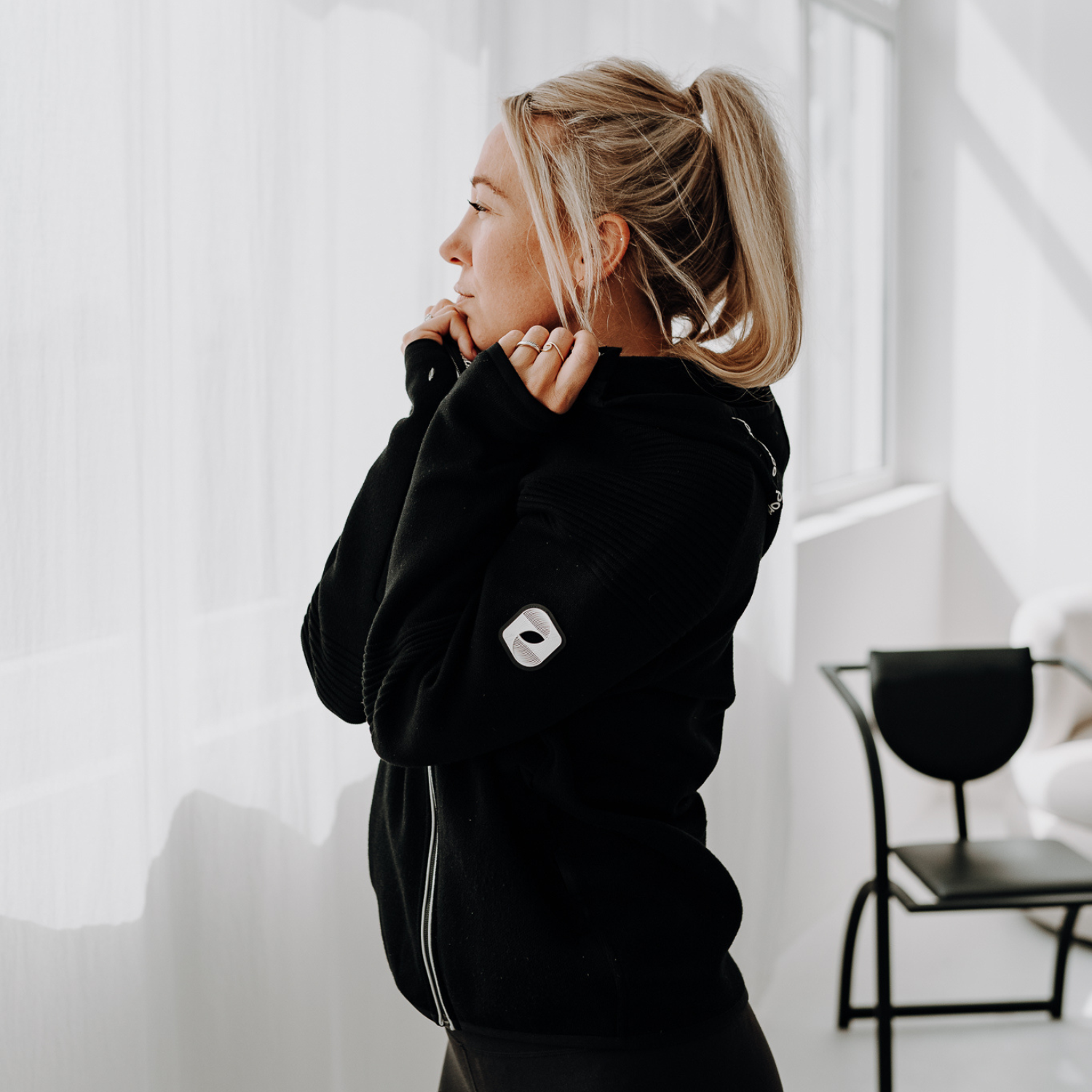Dieser Artikel richtet sich an dich, wenn du deine bestehende Routine optimieren, eine neue Routine aufbauen möchtest oder einfach neue Impulse brauchst, um deinen Alltag effizienter zu gestalten. Am Ende dieses Artikels wirst du in der Lage sein, deine individuelle Routine aufzubauen, die dein Leben sportlicher, vitaler und resilienter macht.
In diesem Artikel lernst du, was Routinen sind, wofür wir sie nutzen können und du lernst anhand meines 5-Schritte-Plans, wie du deine eigene Routine aufbaust.
Was sind Routinen?
Routinen sind regelmäßige, wiederkehrende Handlungen oder Abläufe, die in unseren Alltag integriert sind. Routinen geben uns Struktur und stabilisieren unser Fundament. Sie können in verschiedenen Bereichen unseres Lebens vorkommen, wie z.B. im Berufsleben, im Sport oder im Privatleben. Eine Morgenroutine kann beispielsweise alle Lebensbereiche beeinflussen, indem sie dich bewusst auf den bevorstehenden Tag vorbereitet.. Wir können Routinen bewusst oder unbewusst entwickeln. Bewusst entwickelte Routinen, basieren auf Selbstreflektion. Wenn wir unsere Schwachpunkte und Bedürfnisse kennen, können wir die Routine gezielt ausrichten, um uns in genau diesen Punkten zu optimieren.
Meine Erfahrung zeigt, dass bereits sehr viele Menschen, unbewusst Routinen entwickelt haben. Offenbar gibt es einen unsichtbaren Lenker in uns, der diese Form der Struktur und Selbstbekräftigung fördert. Eine meiner Workshop Teilnehmerinnen berichtet, dass sie jeden Morgen und Abend in 6 Schritten ihre Gesichtsreinigung vollzieht und dadurch in ein Momentum von Wellbeing und Selfcare eintauche. Ein Profisportler berichtet von seiner Gebetsroutine vor jedem Wettkampf, was ihm zu mehr Selbstvertrauen verhelfe. Beide waren sich nicht bewusst, dass sie bereits eine Routine pflegen.

Warum nutzen wir Routinen? Was sind die Benefits?
Routinen bieten zahlreiche Vorteile. Routinen geben uns Struktur und Stabilität. In einem dynamischen Alltag, der oftmals geprägt ist von Leistung und Produktivität, kann das mentale Gleichgewicht schon mal ins Schwanken geraten. Wir haben die Erwartungen an die eigene Leistung nicht erfüllt, wir konnten die Unterlage nicht fristgerecht einreichen, äußere Trigger rauben Energie. Das alles kann Stress erzeugen, der uns, sofern wir ihn nicht mehr kontrollieren können überwältigt. Was haben Routinen nun damit zu tun? Sie verhelfen uns, resilienter und widerstandsfähiger gegenüber äußeren Einflüssen zu werden. Kurzum: Wir verschwenden weniger Energie mit Tätigkeiten oder Gedanken, die uns stressen und setzen unsere Energie für die Dinge ein, für die wir sie wirklich nutzen wollen.
Wir werden im Alltag produktiver, treffen Entscheidungen leichter und gehen unsere Ziele disziplinierter an.
Wer nutzt Routinen?
Routinen werden von Menschen in allen Lebensbereichen genutzt. Sportler nutzen sie zur Optimierung ihrer Trainingspläne und Ernährung. Berufstätige setzen sie ein, um ihre Arbeit effizienter zu gestalten und ein besseres Zeitmanagement zu erreichen. Auch im persönlichen Bereich sind Routinen verbreitet, um den Tag mit positiven Gedanken zu beginnen oder zu beenden. Menschen jeden Alters und in verschiedenen Lebenssituationen können von gut etablierten Routinen profitieren.
Lass uns anschauen, wie das Ganze in der Praxis funktioniert. Die folgenden 5 Schritte zeigen dir auf, wie du deine Routine selbstständig und individuell für deine persönlichen Bedürfnisse entwickelst.

Dein Fahrplan – so baust du deine eigene Routine auf
Um deine eigene Routine zu bauen, folgst du diesem 4-Schritte-Plan.
Schritt 1: Warum baue ich meine Routine?
Ermittle deinen Status Quo und setze dir klare Ziele.
Um zu wissen, was die Bestandteile deiner Routine sind, also die Maßnahmen, die du kontinuierlich durchführst, musst du zu aller erst deinen Status Quo kennen. Wenn du deine Schwachpunkte identifizierst, kannst du klare Ziele festlegen. Dazu zwei Beispiele:
Schwachpunkt (Bsp.) |
Ziel |
| Ich bin morgens energielos und wenig produktiv. | Ich möchte mittels einer Morgenroutine bestehend aus Sport und angepasster Ernährung meinen Energiehaushalt regulieren. |
| Sobald mein Chef in der Nähe ist zweifle ich an mir und werde unsicher. |
Ich baue mein Selbstvertrauen nachhaltig auf. |
Gehe also einen Moment in dich und überlege, warum du eine eigene Routine aufbauen möchtest. Notiere deine Schwachpunkte und deine darauf aufbauenden Ziele.
Schritt 2: Wie erreiche ich meine Ziele?
Definiere Maßnahmen, mit denen Du deine Ziele erreichst.
Du weißt bereits, was dein Ziel ist. Nun geht es darum, den Weg zum Ziel zu definieren. Überlege, wie du dein Ziel erreichen kannst und dokumentiere es so detailliert wie möglich. Welche Maßnahmen helfen dir, dein Ziel zu erreichen? Welche neuen Techniken bist du bereit auszuprobieren? Möchtest du die Meditation nutzen, um Klarheit und Ruhe in deinen Kopf zu bringen? Möchtest du regelmäßiger Sport treiben, um dich vitaler zu fühlen? Möchtest du deine Ernährung umstellen? Möchtest du deinen Kaffeekonsum reduzieren? Möchtest du Journaling betreiben, um deine Gedanken zu klären? Es gibt vielzählige Methoden. Ich rate dir, max. 3 Maßnahmen in eine neue Routine zu integrieren. Wenn du bereits vertraut bist mit einigen Maßnahmen, kannst du auch weitere Maßnahmen ergänzen. Aber überfordere dich für den Anfang auch nicht.
Überlege also: Welche 3 Maßnahmen möchtest du nutzen und in deiner Routine zusammenführen.
Schritt 3: Wo setze ich meine Routinen? Welche Mittel benötige ich?
Recherchiere nach passenden Lokalitäten/ Formaten/ Kanälen, etc.
Kläre für all deine zuvor definierten Maßnahmen die Lokalität bzw. Kanäle. Benötigst du eine neue Mitgliedschaft in einem Studio? Nutzt du einen Youtube Kanal und wenn ja, welchen? Wo führt deine Joggingstrecke lang? Musst du dir ein neues Journal Buch zulegen? Meldest du dich für ein Online Trainings Programm an?
Definiere in diesem Schritt alle Mittel, die du benötigst, um deine Routine umzusetzen. Das gibt dir Struktur und wird dir die Umsetzung erleichtern.
Schritt 4: Wann arbeite ich an meinen Zielen?
Erstelle einen Zeitplan und stelle dein Selbstmanagement sicher.
Definiere Zeiten, an denen du deine Routine etablieren möchtest. Überlege dir zum einen, wie viel Zeit pro Woche du investieren möchtest. ZB: 3x 1 Stunde, 2x 30 Minuten oder 3x 20 Minuten plus 2x 45 Minuten. Überlege, ob deine Routine morgens, mittags oder abends stattfinden soll, oder in einer kombinierten Variante. Definiere dann die Wochentage, an denen du deine Routine etablierst. Du kannst geregelte Uhrzeiten festlegen oder du planst Zeitfenster ein, um dir etwas mehr Flexibilität zu erlauben. Beachte – es geht bei Routinen nicht darum, möglichst viel Zeit zu investieren, sondern um Kontinuität. Die Regelmäßigkeit wird dich zum Ziel führen.
Schritt 5: Komme in die Umsetzung!
Freue dich auf deine Routine und lege einfach los. Bedenke, dass dein Gehirn max. 21 Tage braucht, um sich an neue Handlungen zu gewöhnen. Sobald sich die neuen Handlungen wie Gewohnheiten anfühlen, laufen sie fast automatisch ab. Motivieren kannst du dich immerzu, indem du dir deine Ziele vor Augen hältst. Sie sind dein Leuchtturm, die dir deinen Weg erhellt.
Beachte bei der Etablierung deiner Routine in deinen Alltag bitte unbedingt die Top 3 Regeln beim Nutzen von Routinen. Sie stärken dein Mindset in puncto Durchhaltevermögen und Selbstakzeptanz.

Top 3 Regeln beim Nutzen von Routinen:
Eins.
Erlaube dir, eine gesunde Balance bei der Umsetzung deiner Routine zu finden. Wenn du mal einen Tag aussetzt, ist das nicht schlimm. Setze dich nicht unter Druck, dich zwingend an deine Routine halten zu müssen. Denn wenn Druck aufkommt, entsteht Stress – also genau das, was wir nicht haben wollen. Sei achtsam, liebevoll und fürsorglich mit dir selbst. Dein Körper und dein Geist werden es dir danken.
Zwei.
Bedenke, dass Routinen dynamisch sind. Wir verändern uns jeden Tag und sind täglich neuen Herausforderungen ausgesetzt. Wenn sich deine Routine nicht mehr stimmig für dich anfühlt, dann optimiere sie. Entferne, ersetze oder ergänze Maßnahmen, um deine Routine erneut für dich zu optimieren. Vergiss dabei nicht, deine Zielsetzung anzupassen.
Drei.
Vergiss nicht, deine Resultate zu überprüfen. Setze dir Erinnerungen in den Kalender, z.B. zum Monatsende, und überprüfe deinen Fortschritt. Denke dabei an klare Beispiele aus deinem Alltag. Sei geduldig mit dir, denn manchmal braucht das Erreichen von Zielen einfach Zeit. Feiere deine Erfolge und mach dir bewusst, was du schon erreicht hast, was sich schon verbessert hat und wie du dich seit Nutzen deiner Routine fühlst. Du darfst stolz auf dich sein, Kontinuität bewiesen zu haben.
So bleibst du dran…
Um deine Routine langfristig aufrechtzuerhalten, ist es wichtig, regelmäßig deinen Fortschritt zu überprüfen und dich selbst zu motivieren. Setze dir kleine, erreichbare Zwischenziele und belohne dich für erreichte Meilensteine. Finde einen Routinen-Partner oder eine Community, die dich unterstützt und motiviert. Halte durch, auch wenn es einmal schwierig wird, und erinnere dich daran, warum du diese Routine begonnen hast. Kontinuität und Geduld sind der Schlüssel zum Erfolg.
Schlussworte
Routinen sind mächtige Werkzeuge, die Struktur und Stabilität in deinen Alltag bringen können. Indem du bewusst Routinen entwickelst und anpasst, kannst du dein Leben effizienter und erfüllter gestalten. Denke daran, dass Veränderungen Zeit brauchen und es in Ordnung ist, wenn du nicht sofort alle Ziele erreichst. Wichtig ist, dass du dranbleibst, flexibel bleibst und stolz auf die Fortschritte bist, die du machst. Und – dass es dir Spaß macht! Fühle dich wohl mit dem was du machst und dir erreichst deine Ziele viel leichter. Starte heute und beobachte, wie positive Veränderungen in deinem Leben Einzug halten.
Hast Du Fragen? Dann schreib uns einfach eine eMail an nosweat@portance.co oder hinterlasse eine Nachricht im Chat!




Hinterlasse einen Kommentar
Alle Kommentare werden vor der Veröffentlichung geprüft.
Diese Website ist durch hCaptcha geschützt und es gelten die allgemeinen Geschäftsbedingungen und Datenschutzbestimmungen von hCaptcha.